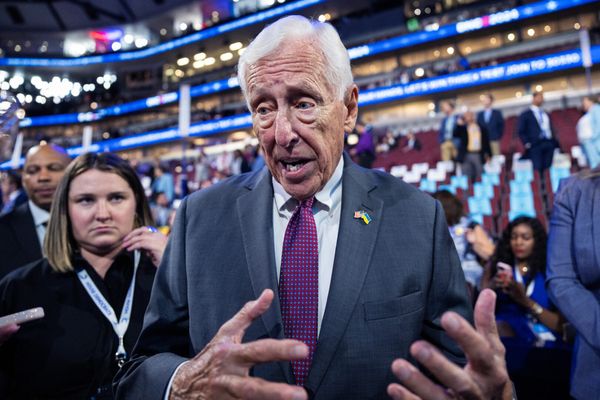
Amid the political sound and fury still reverberating after the seismic local elections in England, there is a quieter but determined noise emanating from the counties and shires. It is the sound of a new politics, based not on hubris or party tribalism but a belief that, in these complex, fast-moving times, only cross-party cooperation can win power and use it effectively.
In Hertsmere and Bracknell, in Lewes and Waverley, across the London commuter belt in Surrey, Kent, Hertfordshire, Sussex and more, progressive party activists refused to be beaten by an electoral system that is stacked against them.
Their success was driven by two simple facts. First, on the regressive side of the ballot paper there was only one place to put your X, on the progressive side, at least three. Tired of splitting the vote and letting the right through on a minority share of the vote, activists have been working under the radar to focus where they can win. This deep tactical campaigning then aligns with unprecedented levels of tactical voting, and the results for the Tories were devastatingly bad.
Second, the alarming but common knowledge that we live in a perma-crisis world of economic, geopolitical, technological and climate chaos. We need an enduring and transformative new progressive consensus, like that of 1945, but, unlike that postwar settlement, it’s not going to come from a single-party source but a multiparty alliance.
What brings this obvious electoral and governing politics together is, of course, proportional representation (PR). The offer to change our voting system galvanises the latent progressive majority in our county and ensures the Tories can never govern again without a majority of the country backing them. It offers the possibility of a long-term and stable coalition to take on the rebuilding of the NHS, along with thousands of new affordable homes and the race to net zero.
And yet this new politics of cooperation is happening despite party leaders, not because of them. Sadly, Labour is the biggest block with its leadership repeatedly claiming PR won’t be in its manifesto while rejecting cooperation.
This could be electoral suicide. All the senior polling pundits predict Labour will struggle to win a majority at the next general election. With the local results suggesting a national-equivalent lead of just seven percentage points, everything points to a hung parliament. To put this in perspective, Ed Miliband did better and went on to lose in 2015, and in 1996 New Labour was 14 points ahead of the Tories.
Last week brought a stark reminder of the absurdity of Labour not backing PR. In the Bedford mayoral election, the progressive vote was more than 30,000, the Tory vote just 16,000. But the Tories won by 145 votes. Progressives continue to divide, and the right continues to conquer.
Labour has a choice. A future under our current first-past-the-post (FPTP) voting system means the people with real influence are a few swing voters in a few swing seats, powerful media barons who set the news agenda and wealthy donors who shape the policy offer in their interests.
The alternative is to appeal to the country’s latent progressive majority that goes back decades. Last Thursday, this progressive vote amounted to over 60%, while the Tories scored just 29%. To mobilise it means recognising that difference and diversity, within a broadly common value set, is a strength not a weakness and that the best future is negotiated not imposed. Critically it allows us to win elections by speaking to the interests of the centre and left, not the right.
But why won’t Keir Starmer and Labour’s old guard take this seemingly obvious route to win, and go with the flow of last week’s results?
Tory HQ and its press attack dogs will try to undermine it, precisely because they fear a traffic-light pincer movement. But if a hung parliament seems most likely, then it’s best to prepare for it.
However, Labour’s nervous hierarchy seems willing to do anything to maintain its monopoly of opposition and the disproportionate power it gives it. There can be no new parties under FPTP because the entry barriers are too high. Remember, it takes just 50,000 votes per Labour MP but for the Greens that’s 865,000. It is a democratic obscenity designed to ensure other politicians and voters desperate to deal with the climate crisis, protect civil liberties or eradicate poverty have nowhere else to go.
Labour strategists will be gambling that the Green and Lib Dem vote share can be squeezed. But these aren’t the deferential days of the last century, people will find and vote for what they see as better alternatives.
During the leadership election, Starmer said: “We’ve got to address the fact that millions of people vote in safe seats and they feel their vote doesn’t count.” He was right then. He can’t be allowed to be wrong now.
The stakes could not be higher: the sulphurous whiff of rightwing authoritarianism is already stifling. We need cooperative politics as an act of self-interest and hope.
Neal Lawson is director of the cross-party campaign organisation Compass







